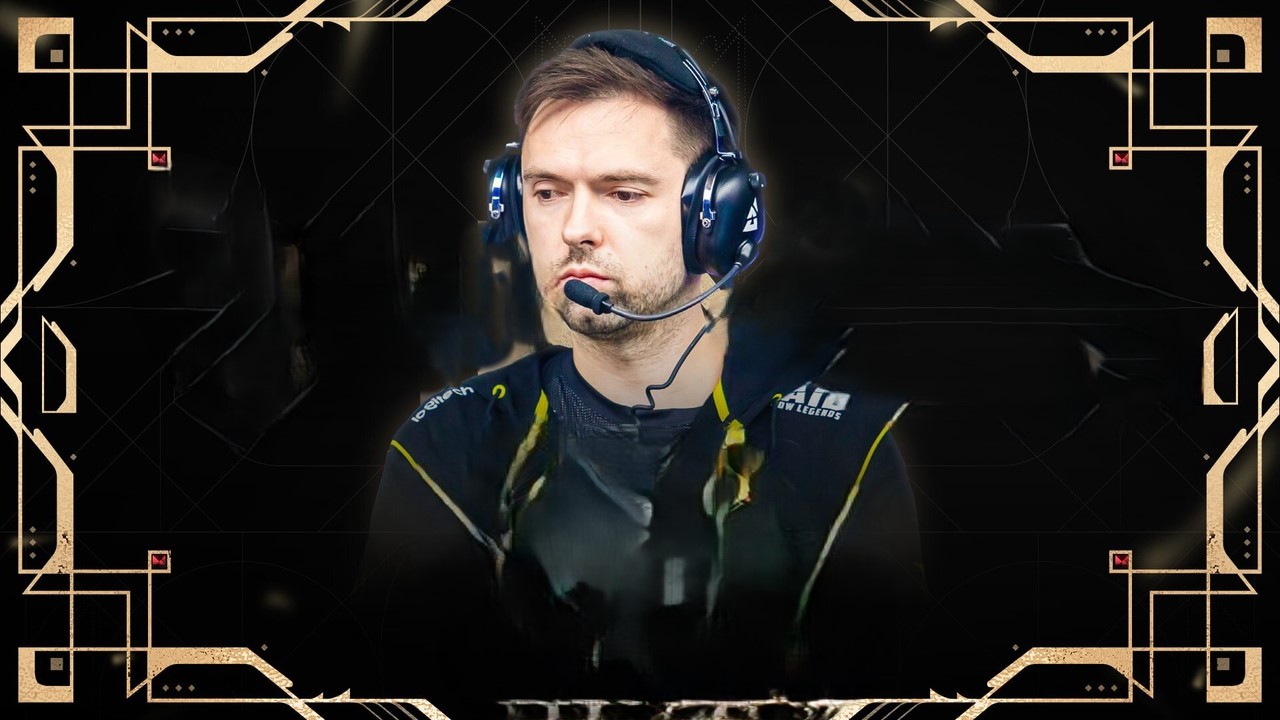Introduction
The esports industry has grown rapidly over the past decade, with millions of players, coaches, and fans becoming deeply involved in competitive gaming. As esports continue to evolve, the role of an esports coach has become more vital to a team’s success. Whether you’re an aspiring esports coach or looking to improve your coaching skills, the tips in this article will guide you toward becoming a successful esports coach in 2024.
The Rise of Esports Coaching

Esports has rapidly grown into a major industry, and with this growth comes the increasing demand for skilled coaches. Just like in traditional sports, esports teams need knowledgeable leaders to guide them to success. As more games and tournaments emerge, the need for coaches who can develop strategies, train players, and build strong teams continues to rise. The growth of online gaming and esports tournaments has made coaching a crucial part of the competitive scene.
The Benefits of Being an Esports Coach

Becoming an esports coach in 2024 offers many benefits. It allows you to be part of the exciting and fast-growing world of competitive gaming. As a coach, you can help players improve their skills and achieve success. Additionally, you get the chance to be a mentor, fostering teamwork and leadership. Many coaches also enjoy the rewards of seeing their team grow and win tournaments, which brings a sense of pride and accomplishment. There is also potential for good financial rewards, as successful teams can attract sponsorships and endorsements.
The Role of an Esports Coach

The role of an esports coach goes beyond just training players. A coach is responsible for creating effective strategies, analyzing the strengths and weaknesses of the team, and offering mental and emotional support. Coaches help players improve their gameplay, communication, and decision-making. They also build team morale, keep everyone focused, and ensure that players work together effectively. The coach plays a key role in the success of the team, guiding them through both victories and challenges.
Top 10 Tips Becoming Esports Coach 2024

1. Understand the Game and Its Mechanics
To be an effective esports coach, you must first have a solid understanding of the game your team is playing. While a strong knowledge of the game’s mechanics, strategies, and meta (the most effective tactics available) is crucial, you should also understand how different team roles and player behaviors interact with one another. A deep understanding of game mechanics allows you to analyze performance accurately and help players improve their skills.
Key Points:
- Stay up-to-date with game patches and updates.
- Learn about game balance and strategies.
- Understand team roles and player synergy.
2. Build Strong Communication Skills
A coach’s primary role is to communicate with players and convey complex ideas in a clear and motivational way. Effective communication can make or break a team’s performance. As an esports coach, you need to be able to explain strategies, provide feedback, and motivate players during both victories and defeats. A good coach should also listen actively to their players to understand their needs and concerns.
Key Points:
- Practice active listening.
- Use both positive and constructive feedback.
- Be clear and concise when explaining strategies.
3. Know How to Manage Team Dynamics
Understanding group dynamics is essential for managing a successful esports team. Players have different personalities, and the ability to manage these differences, as well as foster positive relationships, will impact the team’s performance. As an esports coach, creating a positive and collaborative environment where players feel valued is essential. A strong team spirit often leads to better synergy, which can enhance overall gameplay.
Key Points:
- Encourage teamwork and collaboration.
- Foster respect and trust among players.
- Deal with conflicts swiftly and fairly.
4. Develop Analytical Skills
Being able to analyze gameplay is a crucial skill for an esports coach. You must be able to watch your team’s matches and identify areas for improvement. By breaking down in-game actions and strategies, you can offer actionable advice that helps players refine their skills and decision-making. A strong analytical coach can turn losses into valuable learning experiences.
Key Points:
- Use tools to analyze match data and statistics.
- Break down key moments and player performance.
- Offer practical, data-driven feedback.
5. Master the Art of Strategy
Every successful esports team needs a well-thought-out strategy. As an esports coach, you’ll need to develop strategies based on your team’s strengths and weaknesses as well as those of your opponents. The ability to adjust strategies based on the current match is also key, as the flow of gameplay can shift quickly. Strategy development and execution should be an ongoing process throughout the season.
Key Points:
- Develop game plans that leverage player strengths.
- Adjust strategies mid-game when necessary.
- Study opponents to predict their strategies.
6. Stay Up-to-Date with Esports Trends
Esports, like any other industry, is constantly evolving. Staying informed about new trends in gaming technology, coaching techniques, and esports culture is essential. To be an effective coach, you need to be aware of the latest changes in the competitive gaming landscape, such as new game releases, emerging players, and evolving gameplay strategies.
Key Points:
- Follow industry news and developments.
- Attend eSports events and conferences.
- Participate in online forums and discussions to exchange ideas.
7. Cultivate Mental Toughness and Resilience
Esports are high stakes, fast-paced, and emotionally intense. Players can experience extreme highs and lows during competitions. As a coach, it’s your responsibility to help players build mental toughness and resilience. Teach your players how to handle pressure, manage stress, and bounce back from defeats. Having a resilient mindset can make all the difference during crucial moments in a match.
Key Points:
- Teach players how to focus under pressure.
- Help players develop a strong, positive mindset.
- Promote a growth mindset, where losses are learning opportunities.
8. Be a Role Model
As an esports coach, you are not just a strategist or a mentor, but also a role model for your team. Your actions and behavior set the tone for the rest of the team. Whether it’s your work ethic, attitude, or how you interact with others, your players will look to you for guidance. Set a good example both in and out of the game.
Key Points:
- Lead by example in all aspects of life.
- Demonstrate professionalism and integrity.
- Be supportive and empathetic toward your players.
9. Foster Player Development
Being an esports coach is about more than just preparing your team for the next competition. It’s about helping your players develop as individuals and grow their skills both in and out of the game. Take the time to understand each player’s potential and work with them on personal and professional growth. Whether it’s improving mechanics, decision-making, or leadership skills, your job is to help players become the best versions of themselves.
Key Points:
- Recognize individual player strengths and weaknesses.
- Provide personalized coaching and skill development.
- Help players pursue career growth both inside and outside of esports.
10. Use Technology and Tools Effectively
In 2024, technology plays an essential role in coaching. From game analysis tools to communication platforms, you can leverage various resources to enhance your team’s performance. Familiarize yourself with software and technology that can improve your coaching strategy, such as match replays, stat tracking, and communication tools. Being tech-savvy will help you stay ahead of the curve and provide valuable insights to your team.
Key Points:
- Utilize performance tracking tools and analytics software.
- Use communication platforms to keep the team connected.
- Keep up with new tech innovations in esports coaching.
Encourage Communication Among Players
Good communication between players can make a huge difference in any game. As a coach, foster a culture of open and honest communication within the team. Encourage players to talk about their thoughts during matches, share feedback, and help each other out. This helps players work together more efficiently and solve problems in real time. Clear communication can prevent misunderstandings and improve teamwork.
Focus on Time Management
Esports training can be intense, and players need to balance practice with rest. As a coach, help players manage their time effectively. This means having a good balance between practice sessions, team meetings, and breaks. Ensure players have enough time to relax and recharge so they don’t get burned out. Good time management also helps players stay focused and maintain peak performance during competitions.
Comparative Table: Traditional Coaching vs. Esports Coaching
| Aspect | Traditional Coaching | Esports Coaching |
|---|---|---|
| Game Knowledge | Focus on physical sports techniques | Focus on game mechanics, strategies, and meta |
| Team Communication | Often face-to-face, focused on motivation | Digital tools, clear communication via voice/chat |
| Strategy Development | Based on physical training and playbooks | Analyzing data, opponent strategies, and in-game decisions |
| Mental Toughness | Training for resilience in physical sports | Mental focus, managing stress during high-pressure situations |
| Player Development | Physical and tactical skill development | Individual skill enhancement and team synergy |
| Technology | Limited to physical training equipment | Heavy reliance on game analysis tools, software, and tech for communication |
Analysis Table: Essential Skills for an Esports Coach
| Skill | Importance | Application |
|---|---|---|
| Game Knowledge | High | Ensures accurate strategy development |
| Communication | High | Vital for motivating players and delivering feedback |
| Team Management | High | Ensures team harmony and positive dynamics |
| Strategic Thinking | Very High | Key to winning matches and tournaments |
| Mental Resilience | Moderate | Helps players cope with losses and pressure |
| Technological Proficiency | Moderate | Essential for analyzing game data and improving team performance |
Conclusion
Becoming an esports coach in 2024 requires more than just understanding the game. It demands a comprehensive skill set that includes strategic thinking, team management, mental toughness, and a strong grasp of technology. With the growing complexity of esports, coaches must continue to adapt, learn, and refine their skills. The tips provided in this article will help guide aspiring coaches as they navigate this exciting and fast-paced industry.






